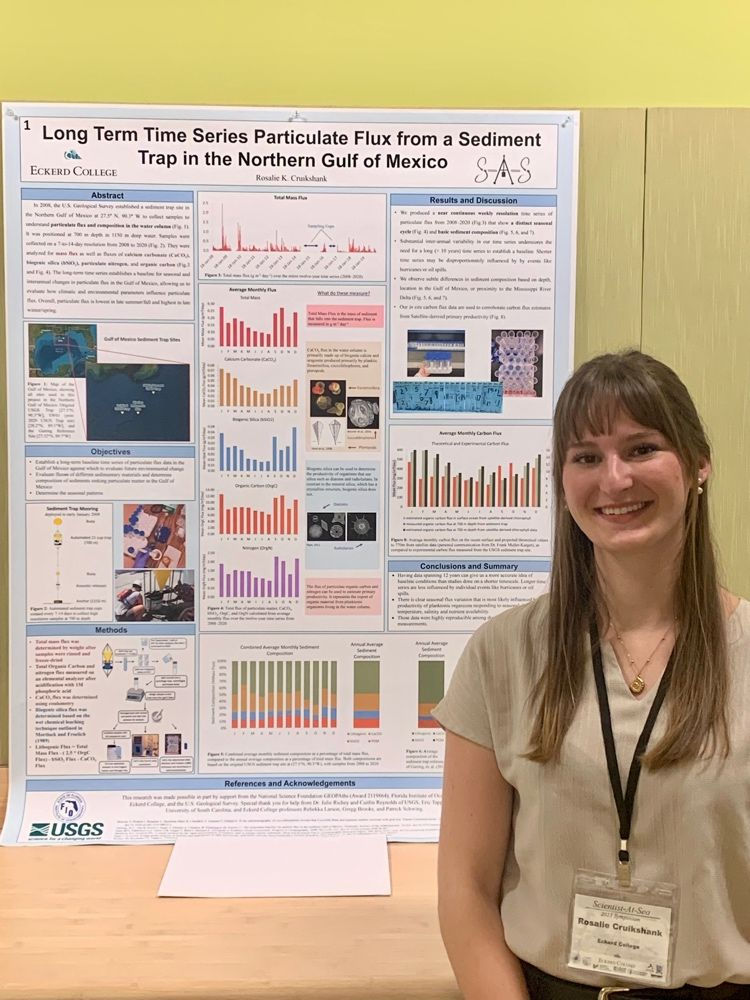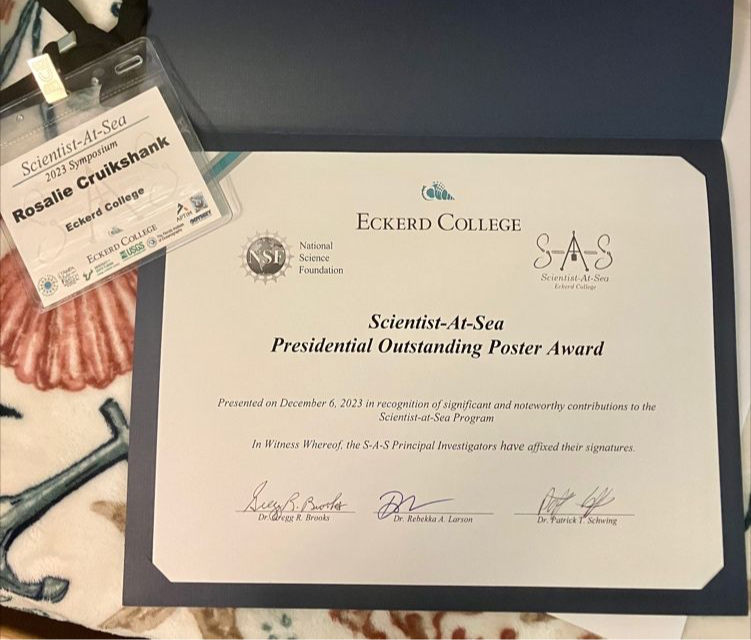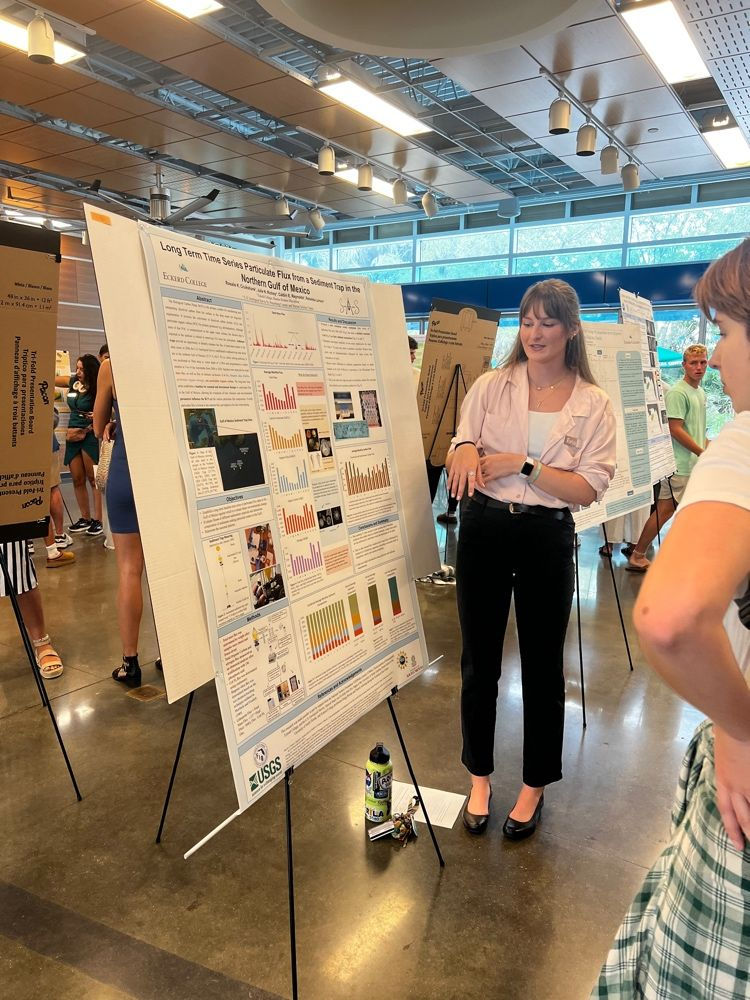Research Communication at Symposiums
- Rosalie K. Cruikshank
- Jul 15, 2024
- 2 min read

As a student in the sciences, it is important to communicate my research to present my findings and network with other scientists. Last December I presented my work on sediment flux at the Scientist-at-Sea symposium at Tampa Bay Watch! This was the culmination of the year-long Scientist-at-Sea course through Eckerd College, where students were able to plan and attend a research cruise on the Florida Institute of Oceanography’s RV Weatherbird and create a research project from data collected. My project was on long term particulate flux in the northern Gulf of Mexico based on an established U.S. Geological Survey (USGS) sediment trap.
A few months later, I was also able to present the same research at the Eckerd College Spring Student Research Symposium. It was rewarding to share my hard work with my peers and professors as well as listen to other student's presentations and learn about what science other students at my college have been conducting.

There were many long hours that went into this project and perfecting the details of my poster. My mentors at the USGS and Eckerd College helped tremendously by guiding me through my first major research experience, poster creation, and symposium presentation. Thanks to their help, the time put into this project, and successful communication of the research, I was graciously awarded the Presidential Oustanding Poster Award at the Scientist at Sea Symposium!

For any students who have research they have been working on, I would highly recommend looking into symposiums and conferences in your area to present your research. The skills learned through creating a poster and communicating your research are extremely beneficial, and the people met through networking at those events could influence your future career path or opportunities for continued education. Cololeges often have grants that students can apply for that will cover the costs of poster submission or attendance fees at conferences, so look into what your school or area offers!





Comments